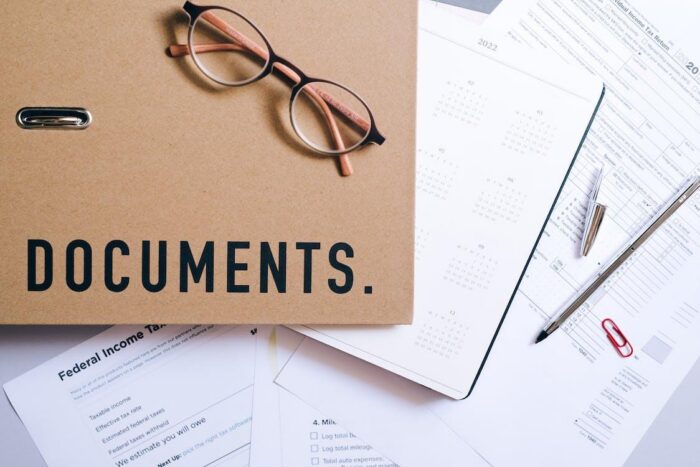Estate planning entails designating someone or the people who will receive your assets after your death or in case you are incapacitated. It is typically done with the help of a trusted lawyer who helps ensure your beneficiaries receive the assets allocated to them without lengthy delays and with minimal tax implications. This estate planning guide will help you know what you need to consider and the decisions you should make as you plan for your future and that of your loved ones.
Table of Contents
Useful Documents

The documents you need when planning your estate will depend on your specific circumstances. They also depend on your estate’s size and complexity. Regardless, you should prepare the following documents:
- Balance statements that outline all your debts
- Property ownership documents, including titles, deeds, and mortgages
- Financial account statements, including investments, retirement account and plans, and savings
- Insurance policies such as disability, health, or life insurance
For a detailed and exact list of documents that apply to you, contact the estate planning attorneys at Hinojosa & Forer LLP, who will take you through this process. Even when you seek the services of an estate planning attorney, you still need to understand what happens at each stage of estate planning.
Creating an Inventory

An inventory is a list of everything you own, including intangible and tangible assets. Having one will help you decide what to distribute to whom. Typically, people start with significant assets such as land, homes, and other pieces of real estate. Once you list them all, ensure you have the documentation required to show ownership.
Next, you should list all your motorcycles, vehicles, boats, and any other property that could be listed under transportation. Include household furnishings, collectible items such as art, antiques and coins, bank and brokerage accounts, clothes, accessories, jewelry, and all accounts to complete the list.
In addition to assets, you also want to make a list of your liabilities and debts that are outstanding. Doing so makes it easier for your estate executor to notify all relevant passing of your passing.
Make a Last Will and Statement
Once you have accounted for all your assets and liabilities, the next step is accounting for your family’s future. To do so, create a will if you do not have one. A will explains who will receive what from your list of assets.
Another critical issue to handle is your life insurance. Having a policy is essential if you have young children who will need a safety net in case of your demise. If you are unsure about how much insurance you need, talk to a broker so they can explain everything to you.
Lastly, you need to name your children’s guardian. You need to assign a guardian if you have minor children. This should be someone you trust implicitly.
Find an Estate Executor
You need to name an estate executor in your last will and statement. You should pick someone you trust because they will be responsible for ensuring all the stipulations in your will are followed according to your wishes.
Other estate executor qualities include being financially stable so they are not deemed a risk, responsible so they use the best judgment when executing the will, and mentally fit so they understand the weight of the responsibility bestowed upon them.
Establish Your Legal Directives
You could put several legal directives in place as part of your estate plan. The first is a trust, where you can create a revocable or irrevocable one. The difference is that the creator can annul the first but cannot do the same for the second. If you go with a trust, you will have to put all your assets in it and then assign a trustee to manage it on your behalf and that of your beneficiaries.
They are required to take over if you become ill or incapacitated. They are also required to distribute your assets according to your wishes upon your death.
The second is a medical care directive, which is also called a living will. A living will lays down what should happen with your medical care if you can no longer make those decisions.
The third is directives to do with power of attorney. A financial power of attorney allows someone you trust to make financial decisions on your behalf. They will act in legal and financial situations, which include paying taxes and bills or managing your assets. A limited power of attorney limits the power the person who holds the title has.
Review Your List of Beneficiaries

Go through all your documents to ensure you have filled out everything you need regarding beneficiaries. For example, your insurance products or retirement plans could have separate sections for beneficiaries that you need to fill out.
Next, check that the right assets are going to the right people. Things change all the time, and assets might end up going to the wrong person. There have been cases where partners have forgotten to remove their ex-partners from their policies, so the payouts went to the ex-partners instead of the partners’ current family after they passed away.
Third, fill everything out to avoid the unseen consequences of probate. If you leave any sections blank, probate will distribute all the assets in that section depending on the established rules, which means some assets might go to the wrong people.
Lastly, name your contingent beneficiaries. These are beneficiaries who work as stand-ins for your primary beneficiary. Adding them is helpful in case they pass away before you and you do not update the list of beneficiaries.
Consider Tax Obligations
You could keep up with estate tax rules or let your lawyer handle them. Contact an estate planning lawyer periodically to discuss anything that has changed with these rules to ensure you are aware of anything that might affect your estate.
Estate planning is essential to ensuring your loved ones and beneficiaries are cared for once you pass away. It is an elaborate process that involves working with a lawyer to ensure you do it right and cover all bases.

